The four headed presidential monument blasted into the a mountainside sounds as outlandish today as it must have 90 years ago, but at the height of the Great Depression, a monument like Mount Rushmore was exactly what America needed.
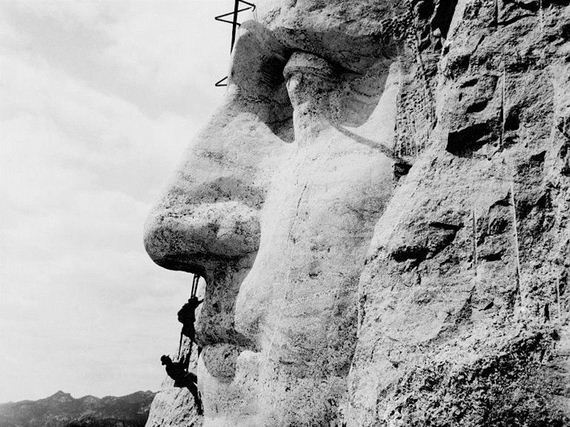
Constructed from 1927 to 1942, the project employed hundreds daily and became a visual identity to the country.
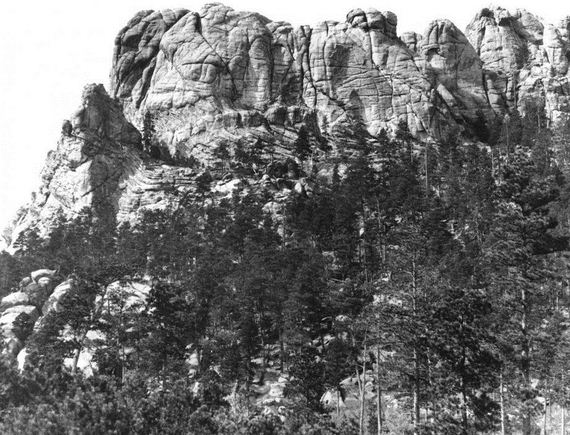
A shot of Mount Rushmore in the Black Hills before construction began.
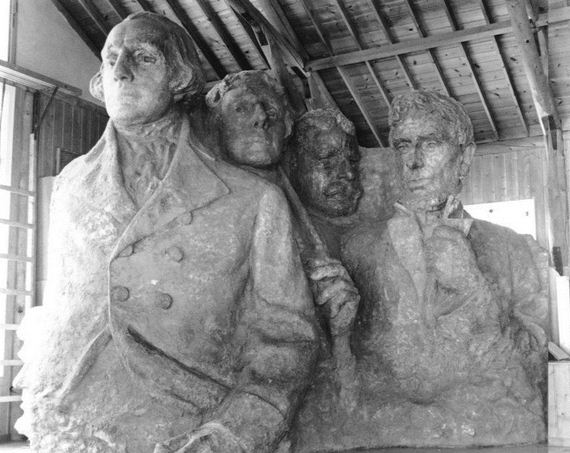
Before mountainside demolition began a studio housed, plaster model was created as a guide.
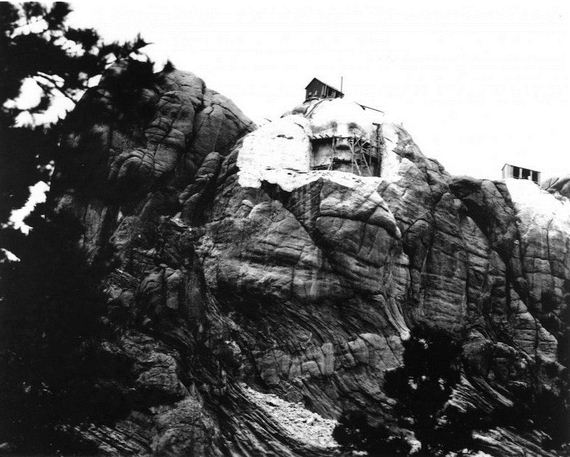
Most of the chiseling on the mountain was done via precision dynamite blasts.
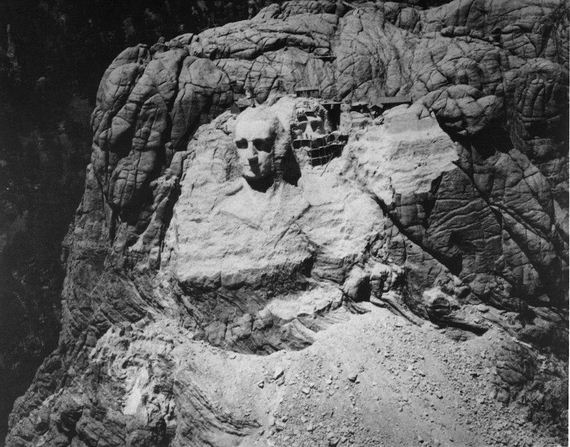
It is estimated that 90% of the overall carving was accomplished this way, by dynamite. The exposed rock beneath was more workable for carving..
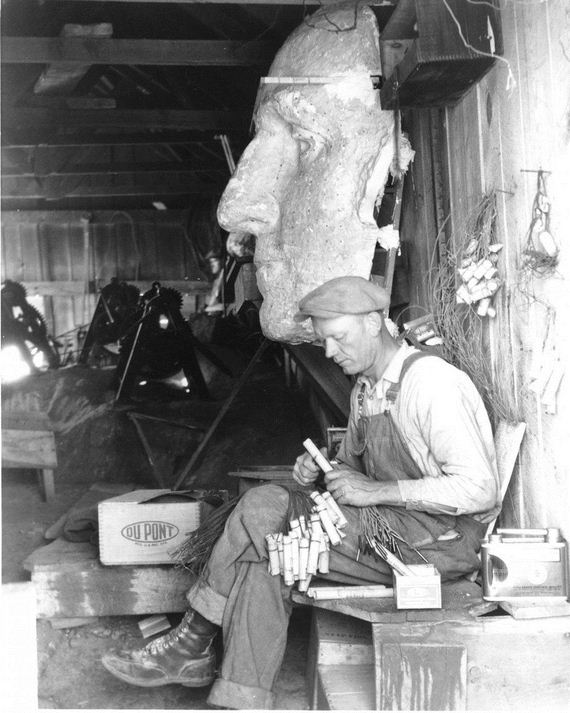
Sticks of dynamite would be set in groups based on size, specifically for blasting around specific rock structures.
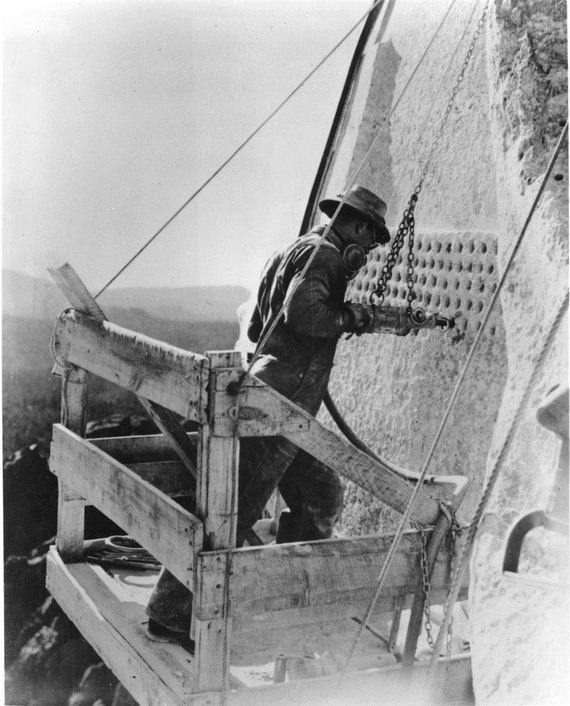
After exposing the softer stone beneath, workers would use jackhammers to create honeycomb patterns in the rock wall.
This weakened the rock to a point that 3-6 inches could be removed by hand.
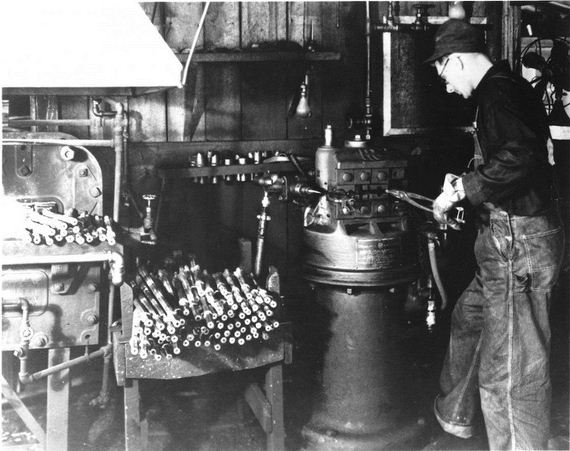
Drills would dull constantly. Blacksmiths worked on sight to sharpen steel drill bits all day. A good worker could sharpen 400 plus drills per day.
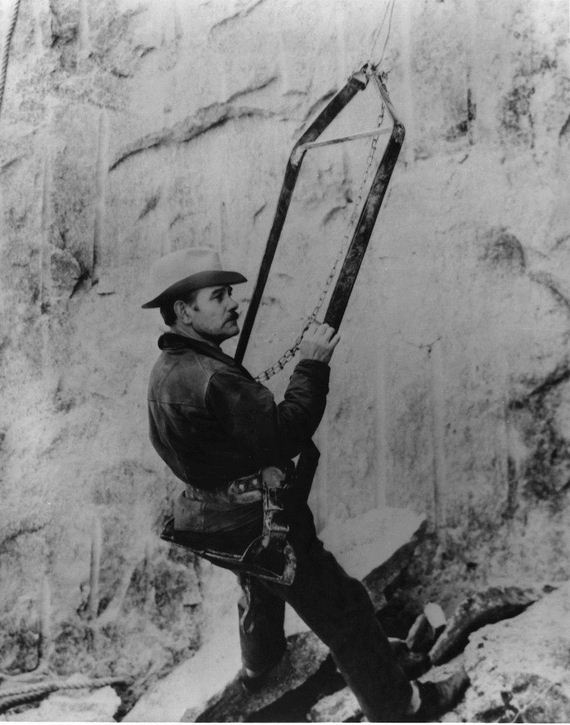
Ever see this photo of the man hanging off of the side? The sling he is in is called a “bosun chair.” Workers would be lowered via 3/8th inch thick steel cables from the top of the mountain.
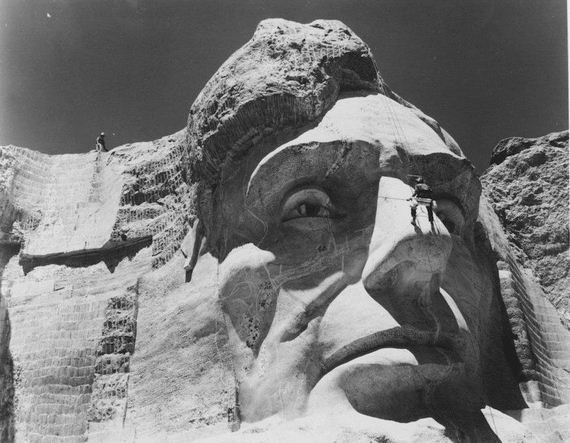
In this photo a worker climbs down Lincoln’s nose in his bosun chair to perform some constructive maintenance.
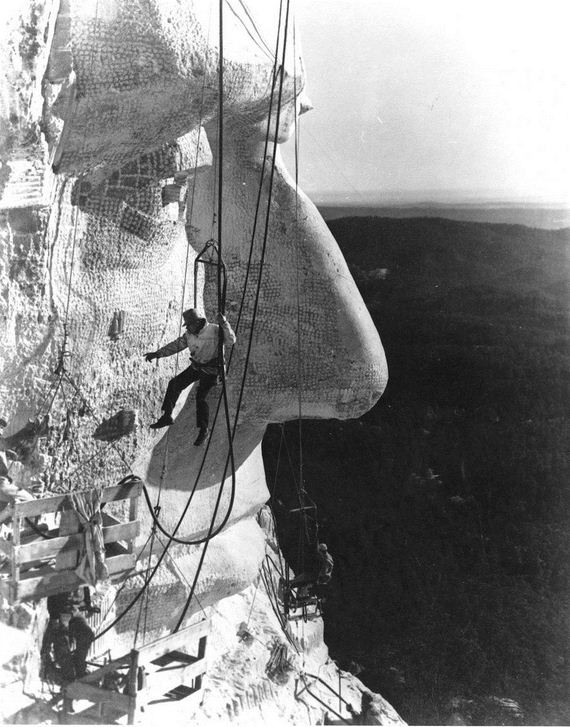
Mount Rushmore’s design was sculpted by Gutzon Borglum. He stayed on the project until his death in 1941.
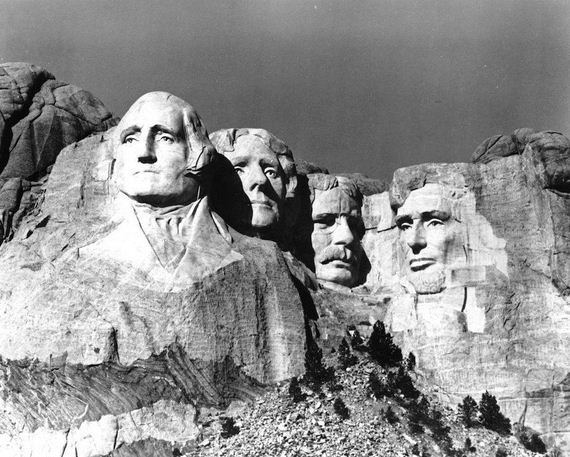
Rushmore was originally intended to be a full bust of each President. A lack of funds toward the end of the project led to only Washington’s neckline to be included.
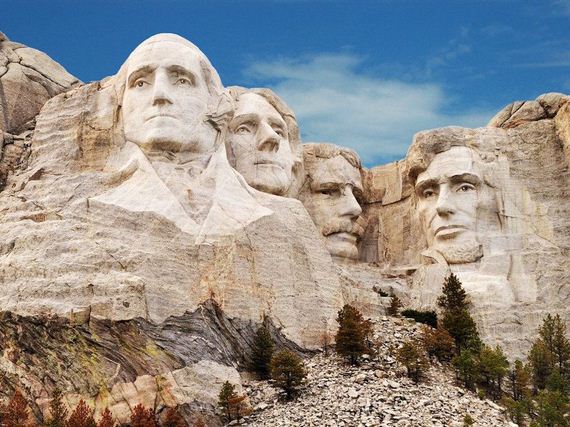
The faces on Mount Rushmore are 60 feet high, and amazingly, no one died during its 14 years of construction.
 Barnorama All Fun In The Barn
Barnorama All Fun In The Barn